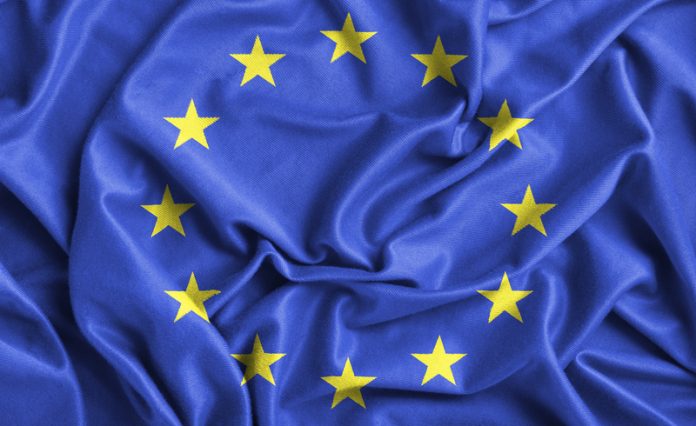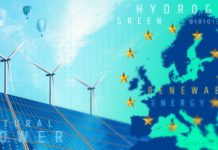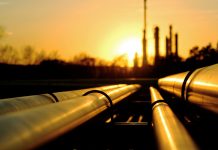European Commissioner for Climate Action and Energy, Miguel Arias Cañete is at the centre of efforts to develop a long-term plan to create a greener, cleaner and more sustainable economy across the European Union (EU), as this probing analysis from Open Access Government discovers
The current European Commissioner for Climate Action and Energy, Miguel Arias Cañete is at the heart of endeavours to develop a long-term plan to create a greener, cleaner and more sustainable economy across the European Union (EU). Climate action and energy, and particularly energy security, are two policy areas with obvious crossborder implications, both for members of the EU and the wider international community.
Tackling climate change, for example, cannot be achieved in isolation; it has long been recognised that coordinated, global efforts are needed to not only deal with emissions but also to foster innovation in greener technology and support adaptation to changing weather patterns.
Energy policy, of course, has a huge role to play in the transition to a low-carbon economy, with renewables and energy efficiency seen as two key pillars in the European Union’s efforts to reduce greenhouse gas emissions.
Miguel Arias Cañete has been the European Commissioner for Climate Action & Energy since 2014. His responsibilities include diversifying sources of Europe’s energy imports, further developing Europe’s renewable energy policy to make it a world leader in the sector and strengthening and promoting the Emissions Trading System (ETS), one of the cornerstones of the EU’s climate policy.
Set up in 2005, the ETS is the world’s first carbon trading system. It currently operates in 31 countries (the 28 EU members plus Iceland, Liechtenstein and Norway) and covers around 45% of the EU’s greenhouse gas emissions.
Under the system, companies and installations in sectors like power and heat generation, commercial aviation and other energy-intensive industries, such as oil refinement, steelmaking and cement production, can buy and receive emission allowances which they
can trade with other ETS participants. They can also buy a limited number of international credits from emission-saving projects around the world. At the end of each year, companies must surrender enough allowances to cover all their emissions or risk heavy fines. Over time, the total ETS cap will be lowered to reduce overall emissions.
Commissioner Miguel Arias Cañete also takes the lead in selecting energy infrastructure projects to help establish a European Energy Union and proposing new EU laws and rules to implement the 2030 climate and energy framework. The framework has three targets: to reduce greenhouse gas emissions by at least 40% compared with 1990 levels; to have at least a 27% share for renewable energy; and an improvement of at least 27% in energy efficiency.
The EU’s efforts to tackle global warming moved into a new phase in the summer as it embarked on the development of a long-term strategy to create a more modern, cleaner and competitive economy. In July this year, Commissioner Miguel Arias Cañete addressed a High Level Stakeholder Conference at the Universite Libre de Bruxelles to discuss the development of the strategy.
If we are to meet our Paris objectives on global warming by the middle of the century, we cannot wait till 2030 or 2040 to define our direction of travel,” he comments.
“The strategy will not be a mere exercise of trajectory setting to reduce emissions. It has to reflect a vision of a prosperous, competitive, greenhouse gas-neutral European economy, working for all Europeans. It has to make the most of the opportunities out there. In terms of facilitating investment. In terms of growth and jobs. In terms of improving the quality of life of our citizens.”
Commissioner Miguel Arias Cañete also announces progress already made, including recent political agreement on the greenhouse gas reduction elements of the Clean Energy for All Europeans package, namely reinforcing energy efficiency, renewable energy and the governance of climate and energy policies. The measures agreed will include an EU-level binding renewable energy target of 32% and a 32.5% indicative energy efficiency target for 2030. (1)
The new rules, described as the “most advanced regulatory framework to enable the EU to remain a frontrunner in the clean energy transition”, also include a provision for all Member States to report to the commission on national long-term emissions strategies with a perspective of at least 30 years.
“The combination of these two targets – and the requirement for EU countries to establish the first-ever integrated national energy and climate plans defining their contribution to these targets –means that we are in a good position to do even better than 40% greenhouse gas reductions by 2030,” Commissioner Miguel Arias Cañete explains.
“Our initial calculations suggest that the European Union could consider raising the level of ambition and increase its target from the current 40% to slightly over 45% by 2030. But this is something that will become clearer in the autumn.”
In his closing address, Commissioner Miguel Arias Cañete says three key themes emerge from the conference:
1. The need that our efforts are comprehensive and encompass all sectors of the economy.
2. The need to ensure that efforts are inclusive so that citizens feel the benefits and become “change agents” of the transition.
3. The need to have a clear vision of the way ahead, help create the right conditions for change, and consolidate the EU’s leadership at a global level.
The European Commission is now consulting on the long-term strategy and will set out its proposals for further discussion in November.
“The international community remains committed to the Paris Agreement, and the EU is keen to shoulder our responsibility, to step up to the plate and to show leadership,” Commissioner Miguel Arias Cañete stresses.
“Coming forward in November with the Commission proposal will also allow us to have a broad and thorough discussion next year so that we can submit a long-term strategy to the UNFCCC at the latest in early 2020, as required under the Paris Agreement.” (2)
References
1 https://ec.europa.eu/energy/en/topics/energy-strategy-and-energyunion/clean-energy-all-europeans
2 https://ec.europa.eu/commission/commissioners/2014-2019/ariascanete_en
Open Access Government
editorial@openaccessgovernment.org
www.openaccessgovernment.org
www.twitter.com/OpenAccessGov











